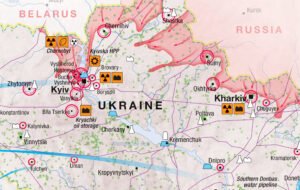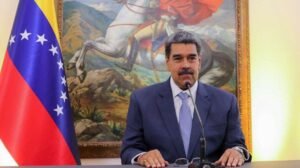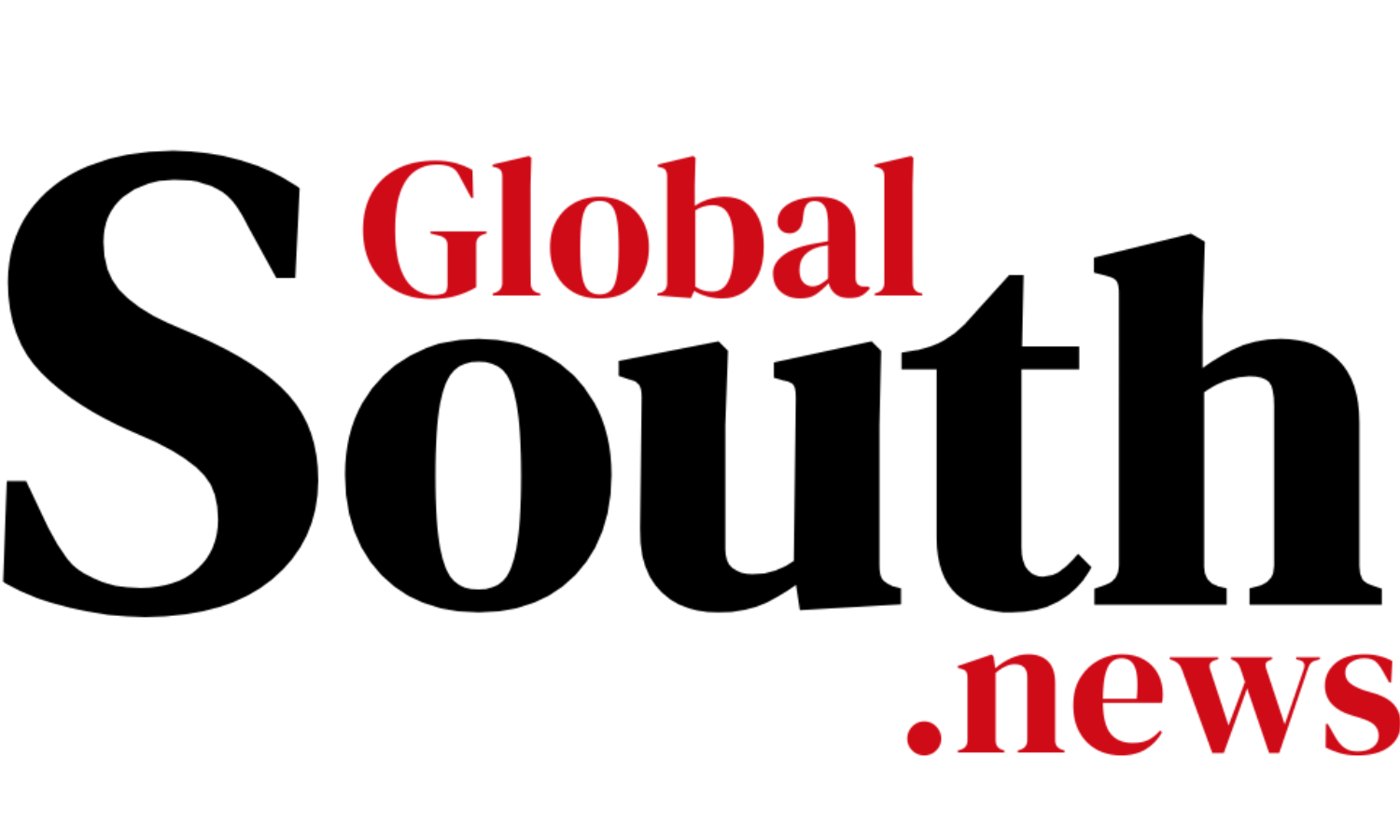
Prezado usuário, aqui estão os artigos que você solicitou, baseados nas notícias que você forneceu. Cada artigo está em inglês, é conciso e inclui links para outras fontes confiáveis, conforme solicitado.
Putin and Trump to Meet in Alaska, Focused on Ukraine Ceasefire
Russian President Vladimir Putin and US President Donald Trump are set to hold a high-stakes summit in Anchorage, Alaska, to discuss a potential resolution to the ongoing conflict in Ukraine. According to the Kremlin, preparations for the meeting were expedited, reflecting a “mutual political will” between the two leaders to engage in dialogue on some of the world’s most challenging issues.
The summit, which will take place at the Elmendorf-Richardson military base, is being hailed by Russian officials as a crucial opportunity to find a diplomatic and political solution to the crisis. Kremlin spokesperson Dmitry Peskov noted that Trump’s approach to resolving complex international matters is “unprecedentedly unusual” and highly valued by Moscow. A key point of the discussion will be the future of the Ukrainian conflict, with both sides hoping to make progress toward a lasting ceasefire.
The meeting is garnering significant international attention, especially from European leaders who are also seeking to end the war. The summit location in Alaska, a former Russian territory, holds symbolic weight, and the outcome is being closely watched as a potential turning point for both US-Russia relations and the future of regional security.
Additional Sources:
Trump’s friendly-to-frustrated relationship with Putin takes the spotlight at the Alaska summit
What to know about the Putin-Trump summit in Alaska
European leaders rally behind Ukraine ahead of Trump-Putin meeting
Pakistan Seeks to Revive Ancient Silk Route and Strengthen Eurasian Ties
Pakistan is actively pursuing a strategy to reconnect with the Eurasian region by leveraging its unique geostrategic location. In a recent interview, Pakistan’s Ambassador to Russia, Muhammad Khalid Jamali, highlighted the country’s desire to serve as a natural corridor for Russia’s “International North-South Transport Corridor” vision, effectively reviving a modern-day version of the ancient Silk Route.
The ambassador emphasized that relations between Pakistan and Russia are on a positive trajectory, marked by cooperation in trade, energy, and defense. He also noted Pakistan’s interest in joining the BRICS group, believing its participation would be mutually beneficial. This push for greater connectivity and economic integration is seen as a way to enhance regional trade and provide landlocked countries in Central Asia and Russia with access to warm-water ports.
This initiative is part of a broader trend of Eurasian nations developing new trade routes to bolster economic cooperation and reduce reliance on traditional shipping lanes. By investing in its transport infrastructure, Pakistan aims to become a central hub for trade, fostering a more interconnected and economically integrated region.
Additional Sources:
The 2035 Eurasian Transport Network: over 300 infrastructure development projects with a total investment of over $234 billion
Pakistan-Russia transport agreement: Strategic rail, road project aims to link South Asia with Eurasia, warm-water ports
Pak-Russia Route: A New Era Of Strategic Connectivity
UK Scales Back Troop Deployment Plans for Ukraine
The United Kingdom has revised its initial plan to deploy a large contingent of troops to Ukraine following a potential ceasefire agreement. While an initial proposal considered a 30,000-personnel force, British military chiefs are now focusing on a more targeted and “realistic mission” to avoid a direct confrontation with Russia.
The new plan would involve a smaller force with specific objectives: providing air security over western Ukraine to enable the resumption of civilian flights, clearing naval mines in the Black Sea to reopen trade routes, and supporting the training of Ukrainian troops. The revised strategy is a response to reluctance from some European nations to commit large numbers of troops and aims to address security concerns in a less escalatory manner.
This decision comes amid a flurry of diplomatic activity, including the upcoming summit between Russian President Vladimir Putin and US President Donald Trump. While the UK and its allies remain committed to supporting Ukraine, the scaled-back plan reflects a cautious approach to the security landscape in the region, prioritizing targeted support over a large-scale military presence on the ground.
Additional Sources:
‘Viable’ chance for Ukraine ceasefire thanks to Trump: UK PM
NATO Nation ‘SNUBS’ Zelensky, UK Axes Plan To Deploy 30k Troops In Ukraine After Putin’s Warning
Britain Scales Back Ukraine Peacekeeping Plan from 30,000 Troops to Targeted Mission
Arab Nations Condemn Netanyahu’s “Greater Israel” Comments
Several Arab states, including Jordan, Egypt, Iraq, Qatar, and Saudi Arabia, have issued strong condemnations of recent comments by Israeli Prime Minister Benjamin Netanyahu regarding the vision of a “Greater Israel.” Netanyahu reportedly stated that he feels “very attached” to the concept, which is understood to refer to an expanded Israel encompassing territories beyond its current borders.
The remarks have been met with swift and unified criticism. Jordan called the comments a “dangerous and provocative escalation,” while Egypt requested clarification, stating the remarks are a “rejection of the option of peace.” Iraq and Saudi Arabia also voiced their total rejection of what they see as “expansionist ambitions” and “delusional claims.” The Arab League echoed these sentiments, describing the statements as a serious threat to collective Arab national security and a violation of international law.
This widespread condemnation underscores the deep regional sensitivities surrounding territorial claims and sovereignty. The comments have reignited fears of Israeli expansionism and come at a particularly tense time, as the region grapples with the ongoing conflict in Gaza and other security challenges.
Additional Sources:
Middle east tensions: Netanyahu’s ‘greater Israel’ comments spark criticism; Arab nations slam ‘delusional claims’
Arab League condemns Netanyahu’s statements on so-called “Greater Israel”
Netanyahu’s ‘Greater Israel’ vision draws regional backlash
South Sudan Rejects Reports of Talks with Israel on Palestinian Resettlement
South Sudan has officially denied claims that it is in discussions with Israel to accept displaced Palestinians from Gaza. A statement from the South Sudanese Foreign Ministry on August 13, 2025, refuted the reports as “baseless” and “unfounded,” and urged media to exercise caution in their reporting. The denial comes after reports from the Associated Press, citing unnamed sources, suggested that Israel was seeking a country to resettle Palestinians from the war-torn territory.
While the South Sudanese government dismissed the claims, the reports have sparked concern among human rights groups, who view such proposals as a form of forced expulsion, a violation of international law. The issue highlights the humanitarian crisis in Gaza and the diplomatic challenges facing Israel as it seeks to manage the aftermath of its offensive.
The situation also brings to light the complexities of regional diplomacy, as other nations like Egypt have reportedly advised South Sudan against any such agreement. The international community continues to watch these developments closely, with many advocating for a solution that respects the rights of the Palestinian people and adheres to international law.
Additional Sources:
South Sudan denies talks with Israel on Palestinian resettlement, refutes Israeli media reports
Juba, Tel Aviv sign pact amid resettlement claims for Gazans
Israel is in talks to possibly resettle Palestinians from Gaza in South Sudan








